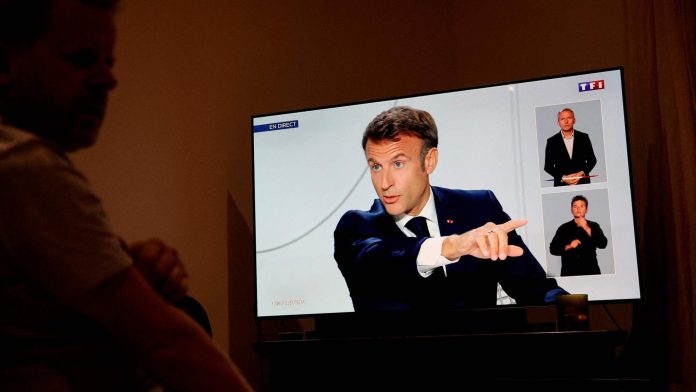The EU investigation into Chinese electric vehicles carries trade risks worth about $900 billion, according to Bloomberg.
The EU’s revised approach to China is partly shaped by French concerns that China’s trade policy is jeopardising key industries. The Paris government is convinced that inaction in such a situation may lead to huge losses for the bloc’s economy.
The officials, who wished to remain anonymous, cited as an example the situation of a decade ago, when cheap imports from China undermined European production. One of the officials warns that a similar future may come for the automotive industry, so the EU faces a tough choice: either assert its influence or submit to Beijing.
However, the aim is not to turn the $900 billion-a-year trade relationship into a direct confrontation, as is the case between the US and China. On the contrary, the measures are aimed at creating equal competitive conditions for the world’s largest economic blocs, the officials added.
French President Emmanuel Macron wants his EU partners to see Europe as a balancing force between the world’s two economic superpowers, allowing Paris and other capitals to develop special relationships with other potential allies such as India.
Nevertheless, the EU’s tougher stance on Chinese economic integration has raised concerns even among Parisian officials. One of them described China’s reaction to the opening of the investigation as extremely alarming, while another saw the risk of a trade war.
On Monday, Chinese Vice Premier He Lifeng expressed “strong concern and dissatisfaction” to the EU’s chief trade negotiator Valdis Dombrovskis over the bloc’s investigation into anti-subsidisation of Chinese electric cars.
Macron has long advocated rethinking the EU’s economic goals, focusing on protecting declining industries and increasing state aid to key sectors.
However, Paris initiatives have met resistance from countries such as Germany, who fear a deterioration in relations with exporters. Moreover, smaller countries are concerned about unfair competition with large companies that benefit from huge state financial support.
Now the EU has launched an investigation into the subsidies, raising the prospect of a fundamental shift in European policy that would abandon the principles of free trade and open markets as the best way to protect the continent’s economic interests.
According to Mujtaba Rahman, head of Europe research at Eurasia Group, Germany’s step backwards from leading European policy creates a vacuum for others, including France and the European Commission, to compete for influence.
Macron’s initiative coincides with US President Joe Biden’s plan for massive subsidies under the Inflation Reduction Act to support domestic industry in the climate transition.
The big wakeup call was the IRA, which completely re-framed the debate and gave France a lot more leverage to say the Americans are ultimately implementing a much more actively managed economy and there’s a much greater role for industrial policy.
Societe Generale chief economist Michala Marcussen expressed concern about possible retaliatory measures from Beijing, as any provocation of China jeopardises the bloc’s economy, which is struggling with an energy crisis and record inflation.
“If you look at it in a very simple way, you could say that if European measures on Chinese electric vehicles were to materialize, then there’s a risk of retaliation to which German cars could well be most exposed. But it won’t necessarily be as black and white as that. Will China really retaliate on the same goods? It risks being much more complex.”
Allianz Trade calculates that if the EU imposes a 1 percentage point increase in tariffs, China’s total losses will be about $8.4 billion. This amount represents only 0.2 per cent of China’s exports compared to 1.5 per cent of EU imports.
Ana Boata, head of economic research at Allianz Trade, believes that tightening monetary policy by the European Central Bank could lead to the EU plunging into recession.
Macron’s ability to influence EU policy is also linked to his political brand built on defending the interests of ordinary people.
EU parliamentary elections will be held next June, and a trade war with China is likely to become one of the key issues.
